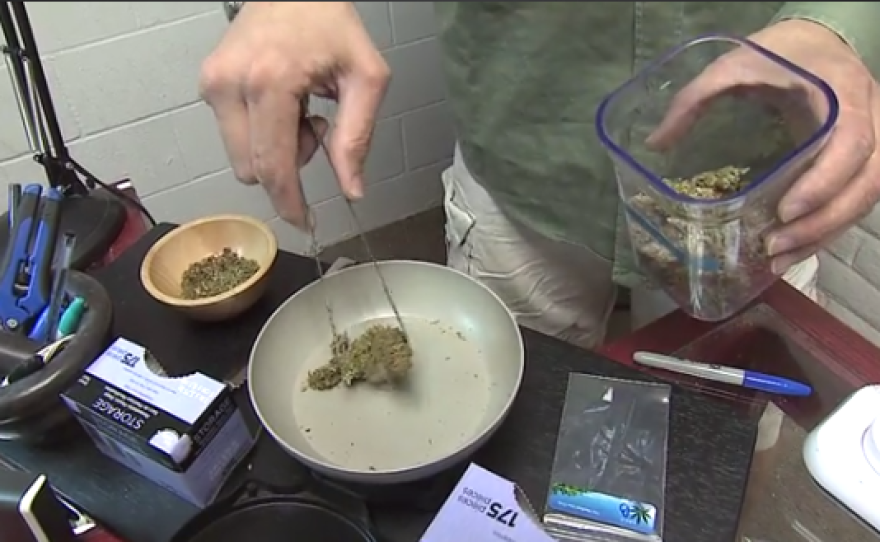Drug enforcement agents in San Diego County are concerned about the latest trends among illegal marijuana growers: County and federal agents are finding more marijuana is being grown in indoor labs and more people are extracting hash oil, the honey-like substance that comes from burning the marijuana plant.
Fifty-five indoor marijuana labs were discovered in San Diego County this year. One out of four were extracting hash oil, which also led to explosions or house fires in up to 15 homes.
The San Diego division of the U.S. Drug Enforcement Administration's narcotics task force has partnered with the San Diego County Sheriff's Department and Health Advocates Rejecting Marijuana group to combat illegal marijuana growers in the county.
Gary Hill, an assistant special agent in charge with the San Diego DEA office, said hash oil can be used and sold in various ways.
“It is this type of THC or hash oil that they would actually mix for edibles, and they also inhale it or smoke it, vaporize it — using high heat and causing an intense, intense high,” Hill said.
And while smoking hash isn’t new, Hill said the drug is far more potent than it was compared to 10 or 20 years ago.
“What we’re finding is that is the trend: that the people prefer to have higher percentage THC, and the easiest way to do that is using this hash oil,” Hill said.
William Sherman, special agent in charge with the San Diego County DEA office, said the rise in number of hash oil extraction labs and indoor marijuana grows is very concerning.
"These operations are a significant threat to public safety, and this NTF team will continue to investigate these illegal and dangerous cultivation and manufacturing operations, most of which have direct ties to local marijuana dispensary storefronts," Sherman said.







